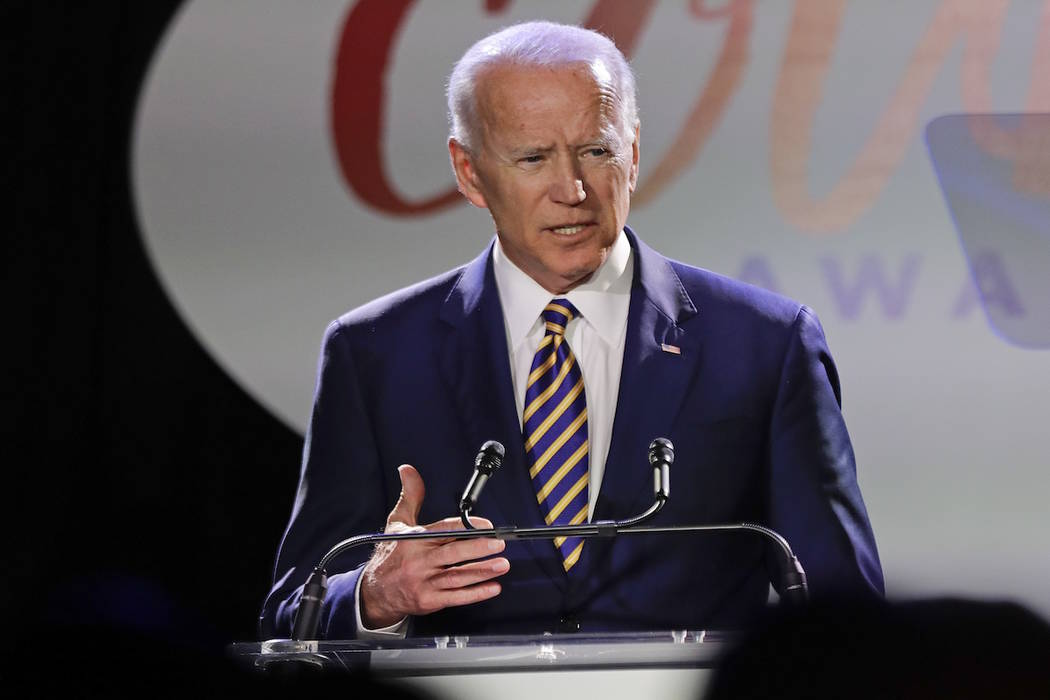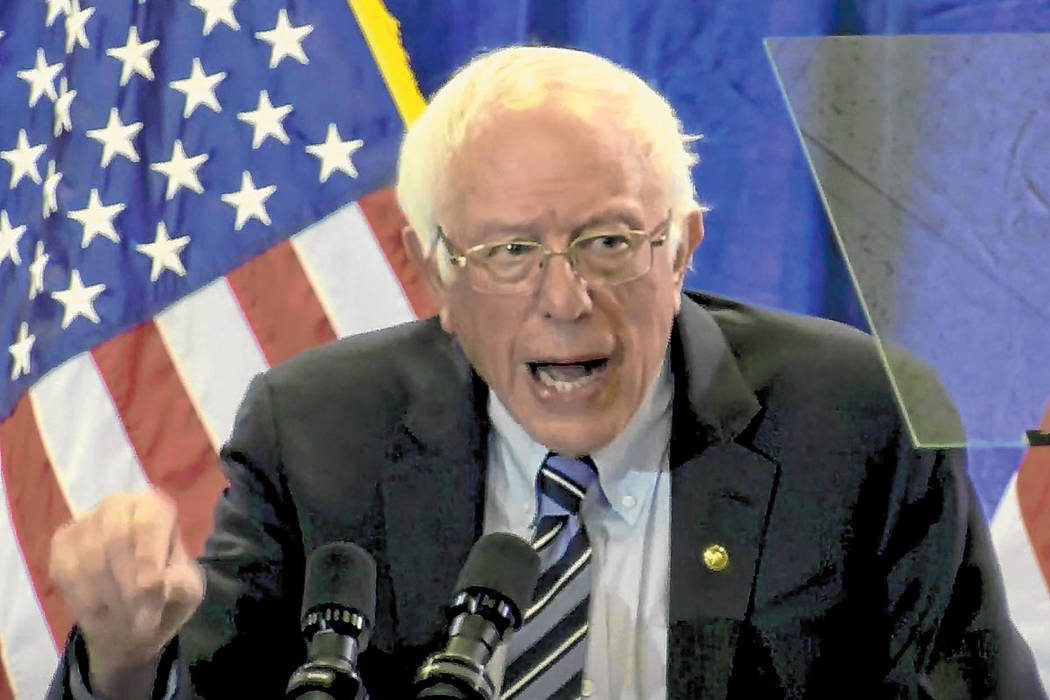STEVE SEBELIUS: It’s Sanders versus Biden in Nevada
Now it’s Nevada’s turn.
Iowa voters have had their say — sort of.
New Hampshire voters have had their say — and, as usual, they’ve winnowed the field a bit. Author and businessman Andrew Yang, Colorado Sen. Michael Bennet and former Massachusetts Gov. Deval Patrick all dropped out of the Democratic presidential race after New Hampshire.
Everybody knew Vermont Sen. Bernie Sanders would do well in New Hampshire, just as everyone knew former Vice President Joe Biden wouldn’t.
The only surprise was former South Bend, Indiana, Mayor Pete Buttigieg, the newcomer who now holds a one-delegate lead in the race.
As Nevada voters head to early voting sites this weekend, the news in Nevada isn’t good for the former vice president, either.
The Nevada Poll™ — conducted by the Review-Journal and AARP Nevada — shows Sanders beating Biden in the Silver State, 25 percent to 18 percent. (Massachusetts Sen. Elizabeth Warren is third with 13 percent, and businessman Tom Steyer is fourth at 11 percent.)
That’s a reversal for Biden, who before The Nevada Poll™ result was running ahead in the Real Clear Politics polling average in Nevada, 21 percent to Sanders’ 17.5 percent.
Up until now, Biden either led or was even with Sanders in every poll but one.
It makes sense: Sanders ran a very close second to former Secretary of State Hillary Clinton in the 2016 caucuses, losing 53 percent to 47 percent. His supporters here are passionate, devoted and, in some cases, fanatical.
It’s not over for Biden, of course, and drawing conclusions from Iowa and New Hampshire is a fool’s errand. We don’t know who’s going to win the nomination from those early results.
At most, we know who can win a chaotic set of caucuses and an early primary with a combined voter turnout equal to, say, the population of Colorado Springs. The average Nevada member of Congress represents more people than have voted in the Democratic contest so far.
So maybe let’s not scare people with fears of a brokered convention just yet?
Clearly, however, the results of the Nevada caucuses have become critical for Biden. If the former vice president can’t perform well in our diverse, union-rich state, his longtime dream of serving as president is probably over.
He’s got some things going for him, still. He’s got strong support in minority communities, especially among African Americans, who make up 10 percent of Nevada’s population.
He has been on a national ballot here, twice, albeit as President Barack Obama’s running mate. Obama-Biden won Nevada by 12 percentage points in 2008 and by 6 percentage points in 2012.
And, unlike 2016, this isn’t a two-person race. There are still a number of other viable candidates on the ballot, especially Warren and Steyer.
Then there’s Culinary Local 226. Although the union elected not to endorse in the race, it still spoke loudly about its preference in a flyer distributed to members rating the candidates on health care.
According to the flyer, Biden, Buttigieg, Steyer and Minnesota Sen. Amy Klobuchar will “protect Culinary healthcare,” while Sanders — who supports “Medicare for All” — wants to “end Culinary healthcare.”
(Warren got a qualified rating, saying she’d end the union’s plan after a phase-in period or when contracts expired.)
The damage that flyer could have among Culinary members was apparent from the reaction — the union reported being “viciously attacked” by Sanders supporters after it went out. (It must be said the flyer is true: Under Medicare for All, most private insurance would be subsumed by the government-run plan. It’s equally true, however, that deductibles, co-pays, co-insurance and similar costs would disappear under Sanders’ plan, although taxes would most certainly go up to cover the costs.)
Culinary members are understandably protective of their health benefits. They’ve fought hard for them, and they have been known to forgo salary increases to keep them. That was apparent during a UNITE HERE/Culinary town hall, when Sanders was heckled while discussing Medicare for All.
But Sanders hasn’t changed his views on health care since he nearly won the state four years ago, and the union is clearly not going to flex its muscle by campaigning hard against Sanders or take a political risk and endorse Biden outright.
Now, at least two outcomes are possible: The Nevada caucuses continue Sanders’ early-state momentum into South Carolina and Super Tuesday, or Joe Biden rises from the indignities of fourth- or fifth-place finishes to become a contender.
Contact Steve Sebelius at SSebelius@reviewjournal.com or 702-383-0253. Follow @SteveSebelius on Twitter.





























